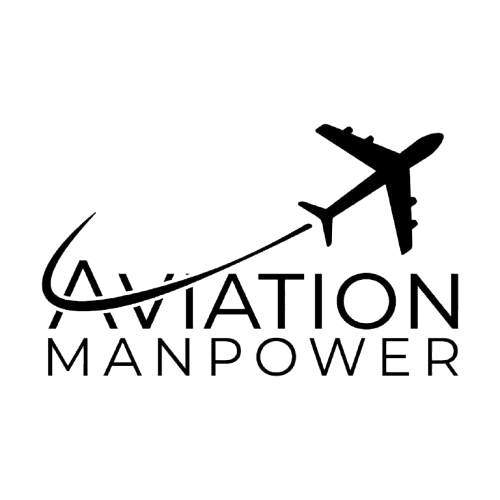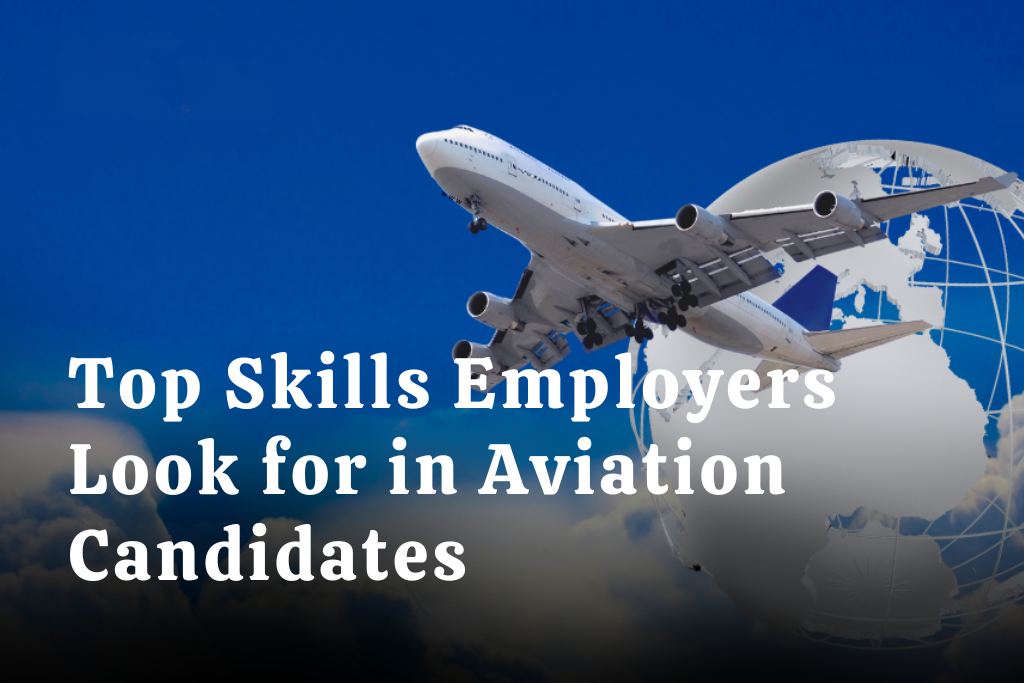Introduction:
Aviation is one of the most exhilarating and fast-paced industries out there. From the sophisticated technology that powers aircraft to the precision required in air traffic management and passenger services, the sector is vast and ever-evolving. For job seekers, this means both tremendous opportunity and intense competition. And in such a competitive landscape, it’s not just technical knowledge or qualifications that aviation recruiters are after.
Whether you’re dreaming of becoming a pilot, a maintenance engineer, an air traffic controller, or part of the ground crew, understanding what skills employers prioritize can give you a much-needed edge. These skills are the bridge between you and your future in the skies, and they go beyond the checklists of certifications and licenses.
Aviation job recruitment agencies—especially the best aviation recruitment agencies—are looking for well-rounded candidates. They seek professionals who not only excel in technical aspects but also embody qualities like teamwork, adaptability, leadership, and effective communication. After all, aviation is a high-stakes environment where every decision impacts safety, efficiency, and customer satisfaction.
In this guide, we’ll explore the top skills employers look for in aviation candidates, how you can develop them, and why these skills matter. We’ll also share links to essential resources that can help you strengthen your career path, including tips on getting started in the industry, understanding its future, and choosing the best certifications.
1. Technical Proficiency and Safety Awareness
Unsurprisingly, strong technical skills remain a cornerstone in aviation hiring. Whether you’re a pilot, maintenance technician, or avionics specialist, employers need assurance that you can perform your tasks with accuracy and responsibility.
Key Focus Areas:
- Aircraft systems and controls
- Navigation and communication tools
- Regulatory compliance (e.g., FAA, ICAO)
- Emergency and safety protocols
This technical knowledge is especially vital when lives are at stake. It’s no wonder aviation recruiters spend extra time verifying a candidate’s hands-on experience and safety orientation.
How to build this skill:
Enroll in certified training programs, simulate scenarios in flight schools or labs, and stay updated with aviation tech trends.
🔗 Pro Tip: Learn which certifications can sharpen your edge in our guide on Best Certifications to Boost Your Aviation Career.
2. Communication Skills: Clear, Concise, and Calm
Miscommunication in aviation can have dire consequences. This is why communication—verbal, written, and even non-verbal—is a must-have skill across all aviation roles.
Why it matters:
- Pilots must communicate clearly with air traffic controllers.
- Maintenance crews need to report technical issues accurately.
- Cabin crews manage passenger needs and emergencies with diplomacy.
Aviation job recruitment agencies often assess communication skills through interviews, simulations, and situational judgment tests.
How to improve:
Practice active listening, engage in role-playing exercises, and work on assertiveness without sounding aggressive. Participate in public speaking or group discussions to build confidence.
3. Problem-Solving and Critical Thinking
In aviation, decisions often need to be made within seconds. Whether it’s an in-flight technical issue, a passenger emergency, or a weather-induced reroute, your ability to stay calm and find a solution can make a world of difference.
Employers want you to:
- Assess situations under pressure.
- Consider alternatives quickly and effectively.
- Use logic without losing sight of human impact.
This is particularly crucial in operational roles like flight dispatch or ground operations, where multitasking and snap decisions are daily expectations.
How to develop:
Engage in scenario-based training or simulations. Analyze past aviation case studies to understand how others handled crises.
4. Adaptability in a Rapidly Changing Environment
The aviation industry is anything but predictable. Shifts in regulations, technology upgrades, global travel bans, or even climate issues demand quick adaptation. Candidates who embrace change and stay flexible in their roles are highly valued.
Examples of adaptability in aviation:
- Adjusting to new aircraft technology.
- Coping with last-minute schedule changes.
- Learning new safety protocols quickly.
Aviation recruiters value professionals who thrive on challenges, not those who are paralyzed by them.
How to build adaptability:
Take cross-functional training, volunteer for new tasks, or enroll in short courses on new tech. Demonstrate a growth mindset during interviews.
🔗 Insight: Understand where the industry is heading with our guide on Future of Aviation: Top Trends Shaping the Industry.
5. Teamwork and Collaboration
Aviation is not a solo endeavor. Pilots rely on co-pilots, crew members depend on ground staff, and everyone depends on accurate communication. Successful operations are a symphony of well-coordinated teamwork.
Recruiters assess:
- Your role in past team projects.
- How do you resolve conflicts?
- Willingness to help beyond your role.
In fact, many aviation job recruitment agencies use group assessments or team simulations during hiring processes to see how well you collaborate.
How to strengthen:
Engage in group activities, participate in team-building exercises, and improve your conflict-resolution skills.
6. Customer Service Orientation
Even in technical or operational roles, a sense of service matters. Airlines and aviation services prioritize customer satisfaction heavily. A candidate with technical knowledge and strong service etiquette is a rare gem.
What employers look for:
- Patience and empathy
- Conflict management
- Professional presentation and behavior
Whether you’re dealing with passengers directly or assisting internal teams, excellent service builds the reputation of your employer and your career growth.
How to build:
Take customer service training programs, work in retail or hospitality to gain experience, and always seek feedback.
7. Cultural Sensitivity and Global Awareness
The aviation industry is incredibly global. Pilots, crews, and ground staff interact with people from diverse cultural backgrounds daily. Sensitivity and respect are not optional—they’re essential.
Valuable traits:
- Awareness of cultural differences.
- Adjusting communication styles.
- Avoiding bias and stereotypes.
The best aviation recruitment agencies look for candidates who foster inclusivity and adaptability in multicultural settings.
How to cultivate:
Travel, learn new languages, attend intercultural training, or join global aviation forums.
8. Leadership and Initiative
Whether you’re applying for an entry-level role or a senior position, showing leadership potential sets you apart. Aviation is an industry that rewards proactive thinkers and action-takers.
Demonstrated by:
- Taking ownership during projects.
- Leading during critical incidents.
- Mentoring junior team members.
Even if you’re not managing others yet, small acts of leadership—like suggesting improvements or volunteering for responsibility—are seen as major positives.
How to build:
Join aviation clubs, take part in simulations where you can lead, or take a basic leadership course online.
🔗 Just starting out? Explore our guide: How to Start a Career in Aviation Industry: A Step-by-Step Guide.
Conclusion:
The aviation world demands more than just degrees and licenses—it calls for well-rounded individuals with sharp skills, quick thinking, and a mindset geared toward safety, service, and teamwork. Aviation recruiters and aviation job recruitment agencies are now selecting candidates based on how well they align with these multidimensional expectations.
Whether you’re at the beginning of your journey or looking to advance further, focusing on these top skills will help you stand out. Don’t just prepare for a job—prepare for a career that takes you to new heights.
Remember, skills can be learned, honed, and refined. Stay curious, keep learning, and be ready to adapt. The sky is not the limit—it’s only the beginning.
FAQs
1. What are the most important soft skills in aviation?
Soft skills like communication, adaptability, teamwork, and problem-solving are crucial across nearly all aviation roles, from pilots to customer service agents.
2. How do I make myself stand out to aviation recruiters?
Highlight a combination of technical certifications and soft skills, use real-world examples in your resume or interviews, and showcase leadership or initiative.
3. What are the best aviation recruitment agencies to apply through?
Top agencies often specialize in specific roles. Look for those that are certified and work with major airlines or airport operators. Always check reviews and success rates.
4. How can I switch to aviation from another industry?
Start by identifying transferable skills (e.g., customer service, project management). Then pursue aviation-specific certifications or entry-level positions.
5. What are the biggest trends shaping future aviation careers?
Automation, green aviation technology, and remote air traffic management are shaping the future.

